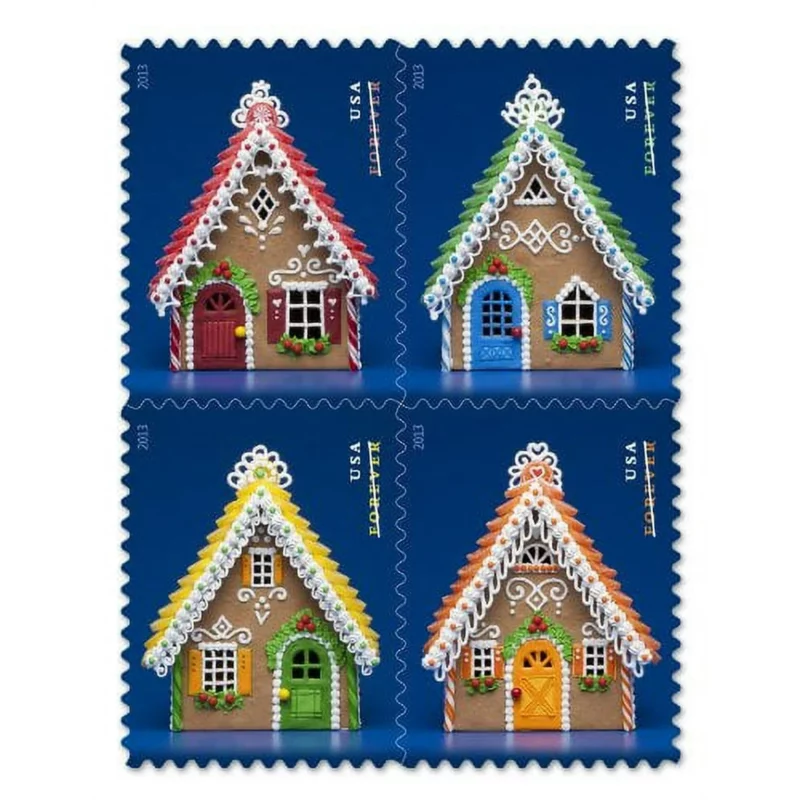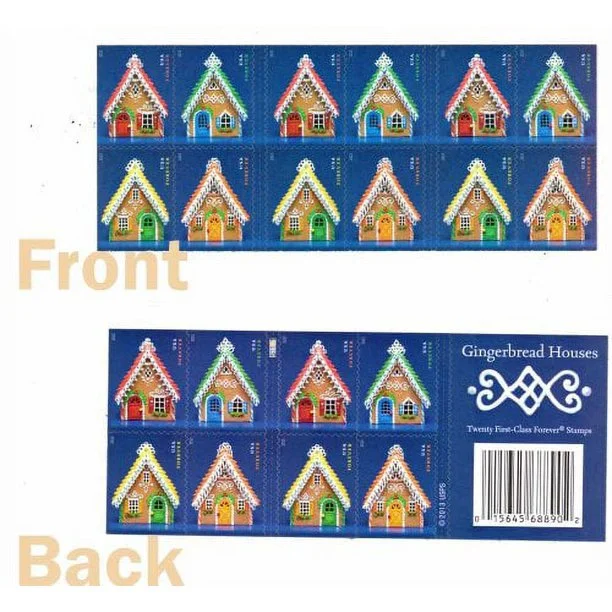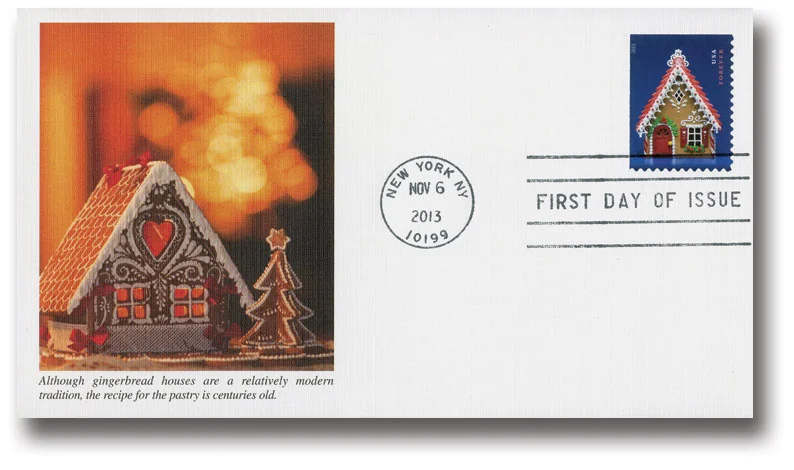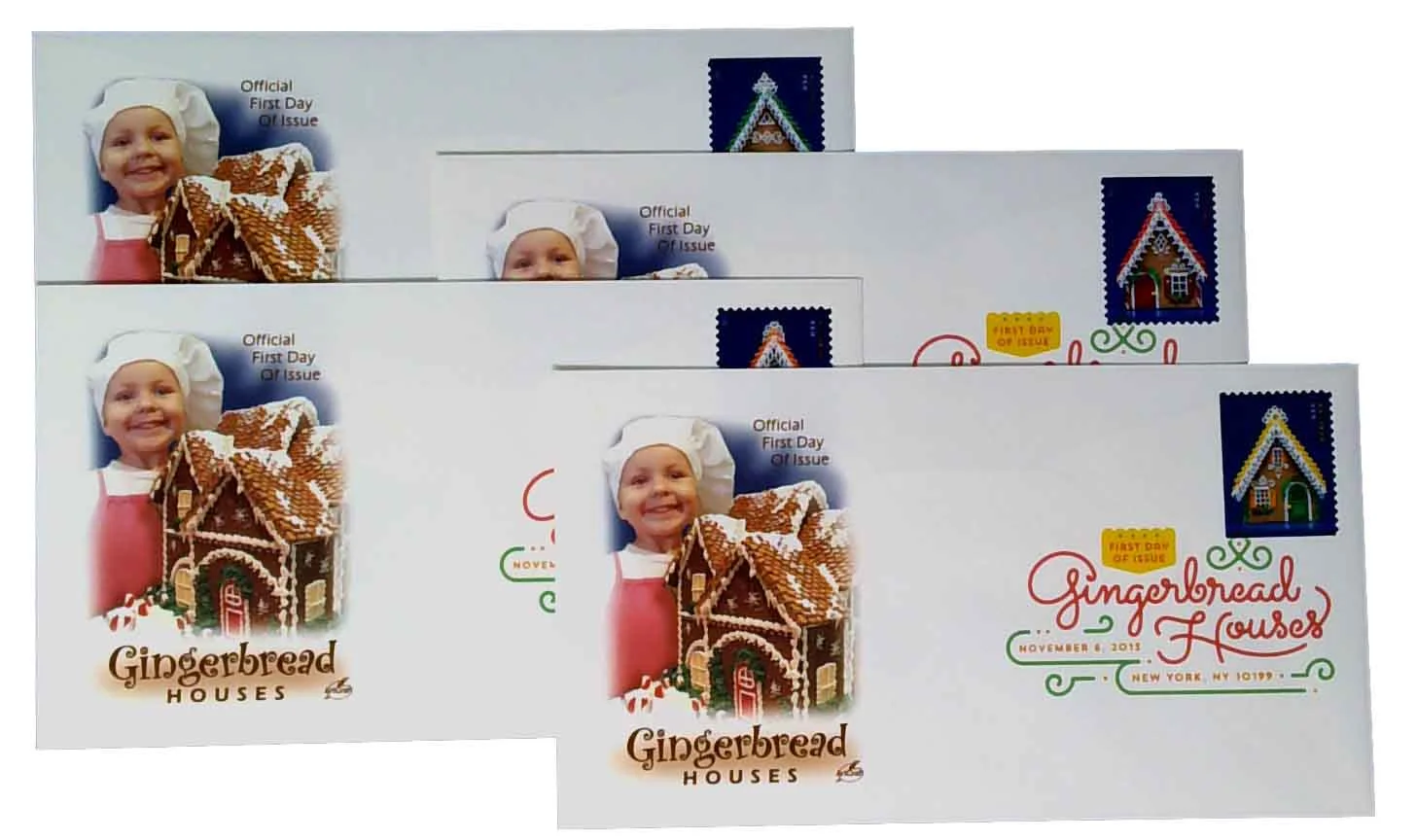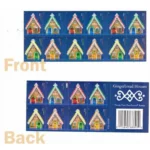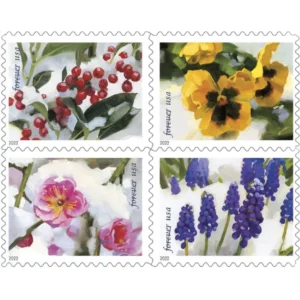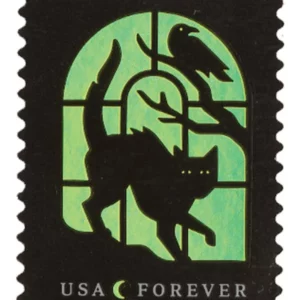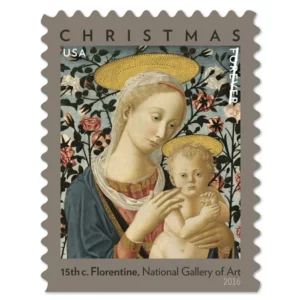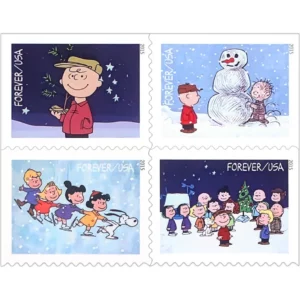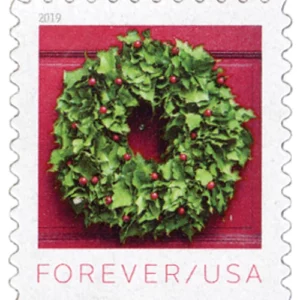Issue Date: November 6, 2013
City: New York, NY
Printed By: Banknote Corporation of America
Printing Method: Offset
Perforations: Serpentine Die Cut 11
Color: Multicolored
This stamp is part of a block of four issued for the 2013 holiday season. Designers constructed the gingerbread houses specifically for the stamp.
Gingerbread has roots in a centuries-old recipe, with varied ingredients globally. The gingerbread houses loved by Americans today differ significantly from the medieval version.
The name originates from “gingerbras,” a term borrowed from thirteenth-century France meaning “preserved ginger.” In the days before refrigeration, people added bits of this spice to recipes to mask the odor of spoiled meat. By the next century, it became known as gingerbread. In the 15th century, one of the earliest-known recipes called for boiling breadcrumbs in honey, spicing them, and pressing them into wooden molds. In 16th century England, bakers replaced breadcrumbs with flour, adding eggs and sugar. Queen Elizabeth I, a dessert enthusiast, is credited with introducing the first gingerbread man.
Gingerbread houses decorated with candy soon became a holiday tradition. In some countries, wine, brandy, or ale are common ingredients. In other regions, bakers use candied citrus peel, pepper, or anise instead of ginger. Honey and molasses often replace sugar. Regardless of the recipe, the charming gingerbread cottages are sure to delight family and friends.

